![]()
Wed, June 23, 2010 | By Crethi Plethi
Why are so many Irish activists supporting the Palestinian cause? And why are so many of the Irish human rights activists so biased and anti-Israel behind a mask of human rights activity?[1] Why was the Rachel Corrie, an Irish-owned ship, part of the Gaza Flotilla in an attempt to challenge a sovereign state and member of the United Nations, Israel, and trying to break a legal blockade of Gaza?
One of the co-organizers of the Gaza Flotilla is the Free Gaza Movement, where the Irish human rights activist Caoimhe Butterly is Gaza Co-Coordinator. She “lived in the Jenin refugee camp for a year in 2002 before being shot by Israeli soldiers, then deported.” [freegaza website, June 23, 2010]. She worked also in Zimbabwe, Chiapas, Guatemala, and Iraq.
Other notorious Israel-bashers, members and endorsers of the Free Gaza Movement are Noam Chomsky, Norman Finkelstein, Mairead Maguire (an Irish Nobel Peace Prize Laureate, who was on board the Rachel Corrie), Aengus Ó Snodaigh (an Irish political leader and activist. He is currently serving his second term as a TD in the Dáil, Ireland’s parliament. Ó Snodaigh previously served as the Sinn Féin[2] representative on the National Forum on Europe and the party’s spokesperson on the Nice Treaty. He is currently the Sinn Féin Chief Whip in Leinster House), Gretta Duisenberg (a dutch international human rights activist, who is outspoken anti-Israel), Jamal El-Khoudary (Palestinian and Chairman of the Popular Committee Against the Siege and member of the Gaza parliament) and Greta Berlin (one of the founders of the Free Gaza Movement and mother of two children whose father was born and raised in Palestine). Other Irish Activists supporting the Gaza Flotilla are Claire Cumiskey, Alan Lonergan, and Niamh Moloughney.[3]
Many of the Irish activists (most of them catholic) supporting the Palestinian cause are leftist “revolutionaries” influenced by the Irish revolutionary propaganda and long history of fighting a revolutionary war against what they consider the British occupation of Ireland (in the past) and Northern Ireland. And when the Irish succeeded in kicking the colonial master Britain out they came to identify themselves with the Palestinians as underdogs.
It’s a fact that the Provisional Irish Revolutionary Army (IRA)[4] supported the Palestinian cause and received weapons and training from the PLO[5] as early as the 1970’s.
“The Irish Republican Army made common anti-colonialist cause with the Palestinian Liberation Organization, with the PLO allegedly providing arms and training for the IRA as early as the 1970s. And so, logically, Irish Protestant leaders allied themselves with the Israelis.”[6]
So in respons the Ulster “protestants movement” of Northern Ireland identified themselves with Israel’s right to self-defense and Israel’s right of existence and are supporting Israel in the war against terrorism.
In a BBC report about the strong Irish dimension in the recent Gaza Flotilla and the connections between Ireland and the Palestinian cause,[7] Eoghan Harris (independent member of the Irish Senate) expresses his concerns about the connection between the Palestinian issue and the Irish people.
“I would probably be the only voice currently in the upper house of the Irish parliament to support Israel. The fact is there’s a whole consensus now in Ireland against Israel.”
Eoghan Harris says after the formation of Israel in 1948 some in Ireland were strongly on side with the new state, seeing a parallel with their own recent struggle against Britain.
“At first Zionism seemed quite an attractive philosophy. We’d been doing something like it ourselves … Each country had ambitions to revive its national language, Hebrew and Gaelic. Though they succeeded and we failed. There was always quite a strong anti-Semitic faction in Ireland, even if suppressed … But then over the years the whole liberal left in Ireland shifted into anti-Israeli mode, as it’s done in Europe generally … There’s a Pavlovian reaction, as a rule the Irish like to side with small nations against any big nation. A lot of it is empty posturing.”
“The Israelis are seen almost as evil, as Unionism was, but the Unionists were never evil, they were just terribly bad at public relations. They said, ‘We’re a democratic state under attack; you should support us.’ But their narrative was bad; they weren’t media friendly … Today the Israelis have the best story in the world to tell, but they tell it terribly badly. They need an Alastair Campbell or a Peter Mandelson.”
Another factor may be Israel’s closeness to the USA. Fintan Lane of the Ireland Palestine Solidarity Campaign[8] says that
“Israel is closely associated with the United States, and even Obama hasn’t managed to recreate the levels of support for America you got here before Bush … But also it’s down to Israel’s policies. I was on the flotilla and just look at the support we’ve had in the last couple of weeks … Palestinian solidarity activists in other European countries have always remarked on the depth of support here for Palestine … People see the Israelis as meting out what Ireland suffered from British colonialists. It’s true that historically some in Israel saw the rebel leader Michael Collins and Eamon de Valera [Ireland’s first Taoiseach] as heroes … the admiration the other way had evaporated by the 1970s as Palestinian resistance gathered momentum. Once interest here was mainly on the Left and from Republicans. Now even right-wing politicians make pro-Palestinian comments. In Northern Ireland the Nationalist community has often had Palestinian flags flying in the street – and in retaliation the Loyalist community tends to fly Israeli flags. They associate Palestinians with Irish Republicanism.”
In a lecture[9] given by Dr. Rory Miller[10] before the John Hewitt Summer School[11] about the Ireland-Palestine connection, he goes into great detail on the number of reasons for the Palestine issue as a major preoccupation in Ireland:
“Over the last half century the Israel-Palestine conflict has occupied a place in the Irish consciousness far greater than its geographic, economic or political position appears to merit. Even, prior to 1956, when Ireland was a powerless/peripheral state without a UN seat [entry vetoed in 1946 by USSR] and struggling to make a go of its new status as an independent republic the Palestine issue was a major preoccupation in Ireland.
Why? A number of reasons–many of which are as true today as they were then:
1. Irish struggle for independence from Britain lead to an innate Irish hostility towards partition as a solution to territorial conflict.
Irish reject “1937 Royal commission on Palestine partition proposal” at league of Nations in 1937. Eamon De Valera[12] attacks the partition as ”the cruelest wrong.”
2. Importance attached to the Holy Land, and in particular, Christian Holy Places in Jerusalem and “The Vatican Factor.”
In June 1949 Foreign minister Sean MacBride told the Irish Parliament “…strongly supports the general demand that the holy places in Palestine should be suitably protected…the whole area of Jerusalem should be brought under international control” closely following the official Vatican position on internationalization since 1948.[13]
3. Identification with Jews in History and the Irish attitude to developing Diplomatic Relations with Israel.
The Irish have undoubtedly seen parallels between their own history of large-scale migration and suffering in response to the Famine and the Penal Laws and that of the Jews under the Russian Tzars and later under the Nazis.
But the Irish attitude was not in favor of the new-born state of Israel. In February 1949, the Cabinet agrees to grant Israel de facto recognition [minimum level of recognition]. Main Irish objective: Avoid any action that construed as Legal recognition and acceptance of Israeli control of Jerusalem.
In 1952, with the death of Weizmann[14], the Irish president O’Ceallaigh[15] was adviced against writing a condolences in case it’s viewed as recognition of Weizmann as Israel’s head of state. Eamon De Valera refuses an invitation to a memorial service in the Dublin synagogue.
The Irish Policy of not sending note of congratulations on Israeli independence day. This refusal of Ireland to commit to legal recognition of Israel frustrated senior Israeli officials who not understand Irish position.
In May 1963 the Irish government granted Israel de jure recognition. This was not a significant departure from ireland’s cautious stance up to this point. The Irish excluded explicit or implicit acceptance of Israeli sovereignty over Jersualem from the statement [this decision was made at the time]. Following de jure recognition of Israel there was no rise in practical ties with Israel:
a) Spring 1963 – no message of sympathy sent on death of president Ben-Zvi.
b) Summer 1966 – Taoiseach decline invitation to dedication of forest in Israel to Eamon de Valera.
c) Refusal to appoint honorary consul or trade representative in Tel Aviv despite numerous applications.
d) Careful not allow Israel to use rising trade ties as back door to gaining further recognition.
e) Not mistake cautious rise in bilateral ties with anti-Israel attitude in international norms and standards.
f) Rise in ties Israel demand similar effort vis a vis Arabs: not a priority region.The Irish government formalised diplomatic relations with Israel on a non-residential ambassadorial basis in December 1974. In the eleven months prior to the decision on Israel, Ireland had commenced, or upgraded, diplomatic relations with Lebanon (January), Qatar, Bahrain and Saudi Arabia (September), Kuwait and the United Arab Emirates (October) and Egypt (December). In January 1975 Ireland entered into non-residential diplomatic relations with Algeria and Tunisia more significantly, in February 1976 an Irish resident mission was opened in Iran. In June 1980 Ireland entered into non-residential diplomatic relations with the Republic of Iraq. In december 1993, following the Oslo Accords—exchange of residential missions with Israel—last to do so in the European Union.
4. Identification with the Palestinian cause.
The Irish struggle for independence also infused them with a deep identification with the Arab nationalist struggle … The Irish anti-colonial experience also left the Irish with a deep hostility towards partition as a solution to territorial conflict, which in turn led to consistent support for the Palestinian cause. The factors set out above influenced both the Irish attitude to the Israel-Palestine conflict and the Israeli and Palestinian attitude to the Irish role in that conflict.
Some of the Irish diplomatic moves and attitude to the Israel-Palestine conflict:
a) The Suez Crisis (UK/France/Israeli invasion of Egypt late 1956), FM Liam Cosgrave called it a “deplored and condemned” invasion.
b) 1967-1973 – Rising of Irish preoccupation with the Palestinian refugee crisis. Irish policy on refugees increasingly at odds with Israel. Israel—peace settlement followed by solution to refugee crisis; Ireland—solution to refugee crisis prerequisite to peace settlement.
c) Following the Irish EEC entry in 1973:
– Frustration over ongoing failure to resolve refugee crisis.
– Combined with anger at Israeli occupation of West Bank and Gaza.
– Rising western sympathy for 3rd world causes and anti-colonial ideology.
– Success of PLO twin policy of terror and international diplomacy.
– Irish go along with French attempt to move the EEC towards its pro-Arab position.
d) October 1974 – Vote with France and Italy [all rest of EC abstain or vote against] for the Resolution in favour of PLO participation in plenary UNGA meetings on Palestine question. Israeli respond “greatly disappointed … Ireland lend support for organization of murderers.”
e) Arafat visits Dublin in 1993 and said“during our long march we have had real friends in Ireland who have given us unlimited support in difficult days when many others would not even listen to us…they have supported us on many occasions and on many levels.”
f) 2000 – The Irish government, like EU partners, have linked condemnations of Palestinian violence with criticisms of Israeli policies and actions that were viewed to have either provoked, fuelled or prolonged the Palestinian resort to terror as ‘excessive and disproportionate’. In particular the government has condemned ‘extra-judicial killings’—what Israel terms as “targeted assassination.” It has also drawn attention to settlement building—as a “cause of massive Palestinian resentment’ as well as ‘a major focus of violent incidents”. Most notably between 2000 and his death in November 2004 Ireland was committed to supporting the role of President Arafat as “ the indispensable partner for dialogue.”
g) On a visit to Dublin in October 2001 Arafat noted that Ireland had always been a ‘good friend’ of the Palestinians.‘we have a historical and very important relationship together, more than friends, and we are proud of it and we are in need of it’.
h) He repeated this again in a March 2002 interview with the Irish Times in which he noted that
‘we are proud that the relations of our two peoples are very strong and very old and we are proud of it’.
The NGO Monitor[16] has published an extensive article about the Irish Government funding for Anti-Israel NGO’s.
Irish Aid is administered through the Development Cooperation Directorate, a division of the Department of Foreign Affairs of the Republic of Ireland. While its declared objectives are to promote “peace and justice” through a “commitment to human rights and fairness in international relations”, Irish Aid funds highly biased and conflict-producing NGOs such as Trocaire, Al Haq, PCHR, War on Want, World Vision, ICAHD, PARC, and Christian Aid. These and other NGOs are engaged in intense political advocacy campaigns directed against Israel, including promotion of boycotts and the rhetoric of demonization.[17]
Dr. John Doyle[18] from the “Centre for International Studies, School of Law and Government”[19] states in his working paper “Irish Nationalism and the Israel-Palestinian Conflict”[20] that there are
“two separate components of Irish nationalism. First, the foreign policy of the Republic of Ireland as the official expression of moderate Irish nationalism but also sets a broader ideological context within which even more radical voices are situated. Secondly, Sinn Fein nationalism, as the largest expression of radical Irish nationalism and the majority party among the nationalist community in Northern Ireland, which sought to utilise comparison with the Palestinian cause in their political discourse over the period of the recent conflict and peace process.”
It is this Irish nationalism what motivates the Irish Human Rights activists in their anti-Israel attitude and this identification with the Palestinian cause is also blinding them for the real dangers Israel and Europe is facing: the Islamic Jihad as a struggle against Israel and the West, of which Hamas is an exponent.
Tony Gallagher, a professor in the graduate school of education at Queen’s University in Belfast, believes that:
“Catholic organizations such as Sinn Fein have had a general orientation to support groups which they would see as representing oppressed people engaged in liberation struggles against more powerful states. Probably the most overt contacts are between Sinn Fein and Henri Batasuna, the radical Basque group … as far as I can recall, the first time that Palestinian flags appeared with any frequency in Nationalist, or Catholic, areas of Belfast was during the siege of Beirut [1982]. At that time, however, this did not result in any comparable flying of Israeli flags in Loyalist, or Protestant, areas of the city.”[21]
![]()
The Place of Murals in the Northern Ireland Conflict
The following is a small excerpt from the chapter “Painting Landscapes: The Place of Murals in the Symbolic Construction of Urban Space” written by Neil Jarman. This chapter is part of the book “Symbols in Northern Ireland” edited by Anthony Buckley. You can order this book via The Institute of Irish Studies.
These pictures of murals will give you a visual image of the identification and support for the Palestinian cause by the Irish [revolutionaries] in Northern Ireland.
“Mural painting has developed into one of the most dynamic media for symbolic expression in the north of Ireland … As images they always have had a functionality: as propaganda, as rhetoric, as ideological and symbolic markers … all murals are site-specific, their power as political statements and as symbols is enhanced by their location … murals and other displays are sometimes situated as territorial indicators or as boundary markers – as a warning or challenge to the ‘other’ … it illustrates the significance for their political meaning of the location of mural paintings.”
The role of the murals are:
- Segregating space
- Displaying resistance
- Breaking boundaries
- The memory of the dead
- Voicing opposition
- Provoking fear within the working-class communities
Mural 1
Derry, the Free Derry Wall; mural with text “You are now entering Free Gaza.” together with an Israeli fighter plane and a rocket aimed at a baby car.
Mural 2
Support for the Catalan cause: “Libertat Països Catalans” together with the Catalan and Irish flag and handcuffed hands. “Saqirse D’Éirin”.
July 20, 2007, Sinn Fein representative Johnny McGibbon said at the Catalan Youth Festival:
“We strive to be the generation that builds and lives in a United and Independent Ireland. We continue to campaign on issues of national and social relevance, growing all the time and helping to popularise the Irish Republican struggle. We openly show our solidarity internationally to peoples rightly entitled to their national independence and sovereignty such as Palestine, the Basque Country and Catalan Countries.
And we simply will not stop until we achieve a United, Independent Irish Republic, based on freedom, rights and justice for all. A new Ireland, an Ireland of Equals. We hope Ireland will act as a beacon to other countries and peoples throughout the world; but we continue to take inspiration from the Basque Country, Palestine, Catalan Countries and beyond.”
Mural 3
Mural, Beechmount Avenue, Belfast, 1982 – “PLO IRA one struggle”; member of Irish Republican Army and member of PLO with rifles and rocket launcher, Irish tricolour and Palestinian flag – “RPG Avenue” – Painted by the Irish Republican Youth Movement.
Mural 4
International references are frequent in republican murals. For example, in Shiels Street, West Belfast in August 1998, a mural in solidarity with Cuba was painted. The image of Che Guevara is central in the mural, which was unveiled during the West Belfast Festival by the head of the Cuban delegation to the European Union, Alfredo Leon.
Mural 5
Mural, Falls Road, Belfast, 1983 – “Solidarity between women in armed struggle”; women militants of (from left to right) Palestine Liberation Organisation, Cumann an mBan (women’s section of Irish Republican Army) and Southwest African People’s Organisation (Namibia), contained within women’s symbol.
Mural 6
Mural 2008, a palestinian boy and girl holding a key. In the background, Jerusalem and Israel’s security wall: “Free Palestine from 60 years of Nakba! We will return. In 1948, 750.000 Palestinians were ethnically cleansed from their lands by zionists. 531 Palestinian villages were depopulated and destroyed. In 2008, 6 million refugees are illegally denied their right of return by Israel”.
Mural 7
Divis Street, Falls, Belfast; December 2002. Left: “ﻦﻳﻄﺴﻠﻔ” and “ﻢﺪﺎﻗ ﺎﻧﻣﻮﻳ” on a background of the Palestinian flag which translate as “Palestine” and “Our day will come” respectively. A victory “V” makes up the white of the flag. Middle: “Palestine. The largest concentration camp in the world!!! 3.3 million innocent people tortured, denied their…freedom!” and “ﺔﻳﻟﻳﺌﺍﺭﺴﻷﺍ ﻊﺌﺎﻀﺑﻠﺍ ﺍﻮﻌﻃﺎﻗ” (translated as “Boycott Israeli Goods”) showing an Israeli soldier aiming a rifle at a protesting Palestinian woman. Right: “ﺍﺪﻧﻠﺮﻳﺇ” and “Tiocfaidh ár lá” on a background of the tricolour flag translated as “Ireland” and “Our day will come” respectively. A victory “V” is also shown.
Mural 8
See Mural 6, january 2009, Gaza war. The Palestinian boy is holding a key as well, the girl is holding a sign with “Happy war. Christmas is over.” “End this barbarian Israeli aggression! This is a war crime! 1300+ slaughtered”.
Mural 9
Derry, January 2005; Community activists paint the Palestinian colours onto Free Derry Wall, an internationally recognised symbol of popular resistance to imperialism.
Mural 10
Rossville Street, Bogside, Derry; February 2006, “Balata. Bogside. Freedom”. A circular panel is composed of the Palestinian and Irish tricolour flags, with the wording on fluttering banners. “Non-stop. Féile 205…Up the Celts” is written on the banner. Flames lick at grey stone walls, and the city skylines can be seen in the distance. A tricolour painted lamppost and a side panel of the mural read “BRY” (Bogside Republican Youth). Swiss graffiti artists with the help of local youths and performers from Balata Refugee Camp painted this mural.
Poster 11
From the Fatehforum.ps: PLO and IRA. Together against Imperialism. “Whoever stands by a just cause cannot possibly be called a terrorist.” – Yasser Arafat.
Mural 12
Rossville Street, Bogside, Derry; December 2002, “PLO” and “Óglaigh na hÉireann” showing the phoenix flanked by the tricolour and the Palestinian flag.
Mural 13
Lecky Road, Brandywell, Derry; February 2006, “Palestine: A Homeland Denied” stencil with a profile of a Palestinian wearing a keffiyeh held by an agal.
Mural 14
Many Irish Catholics have aligned themselves with Palestinians for decades. They have not only placed Palestinian flags alongside Republic of Ireland flags in countless Belfast neighborhoods, but in some of their famous building-sized murals they have also featured Gerry Adams with the likes of Yasser Arafat as well as Nelson Mandela…Even today [july 2002], if one visits the Northern Ireland Sinn Fein headquarters in West Belfast, Gerry Adams’ main office, one will find a large Palestinian flag hanging next to that of Ireland.
Mural 15
Derry; Che Guevara portrait and Cuban flag merging into Irish Tricolour show solidarity with socialist ideals.
Mural 16
Ballymurphy Road, Belfast, 1992: Ireland-Mexico solidarity mural, with a member of Óglaigh na hÉireann (Irish Republican Army), James Connelly (Irish revolutionary), Emiliano Zapata (Mexican revolutionary) and United Farm Workers member. “You can kill the revolutionary but not the revolution”.
Mural 17
Beechmount Avenue, Falls, Belfast, 1999; Ireland – Catalonia solidarity mural, painted 11/8/97 with details of the Catalonian struggle, “El nostre dia arrisara!” (Our day will come).
Mural 18
Beechmount Avenue, Falls, Belfast; august 2001, “Support the Hungerstrikes in Turkey”. Solidarity mural on a red background with a yellow star.
Mural 19
Market Street/Cromac Street, The Markets, Belfast; april 2002, “Palestine Ireland Solidarity. STOP Aggression against Palestinian People” Portrait of Ariel Sharon “Terrorist indicted for War Crimes” and Yasser Arafat “Peacemaker. A life devoted to conflict resolution”. Palestinian flag and Irish tricolour shown.
Mural 20
Divis Street, Clonard, Belfast; December 2002, “Free Palestine. Boycott Israeli Goods” Part mural, part stencil on a grey background. An eye coloured in the red, white, green and black of the Palestinian flag cries a single tear. The tear shows an outline of Israel with the West Bank and Gaza strip highlighted.
Mural 21
Divis Street, Falls, Belfast; December 2002. “Borrokuruko dei eginuz irrintzi but dubil. Tiochfaidh ár lá. ETA bietan jarrai”. ETA mural showing a masked ETA volunteer and the ETA symbol against a swirling blue background.
Mural 22
Alliance Avenue, Ardoyne, Belfast; October 2004, Close-up photograph of graffiti “Basra – Belfast – Baghdad & Bogside. British Troops Not Welcome!”
Mural 23
Lecky Road, Brandywell, Derry; February 2006, Graffiti “Al-Aqsa Martyrs Brigades” and “PLO, BRY, ETA, IRA”. Solidarity graffiti linking the IRA and BRY (Bogside Republican Youth) with other international groupings. The al-Aqsa Martyrs Brigades is a coalition of Palestinian nationalist militias in the West Bank. The group’s name refers to the al-Aqsa Mosque in Jerusalem. The al-Aqsa brigades are responsible for dozens of suicide bombings and many more shooting attacks against Israeli vehicles in the West Bank. It’s alleged leader, Raed Karmi was killed in Tulkarm in January 2002.
Mural 24
Divis Street, Falls, Belfast; September 2006, “No Imperialist Intervention in Iran” with a female figure in profile against the background of the flag of the Islamic Republic of Iran. A bearded figure holds a T-shirt aloft with two falling bombs labeled “USA” and “CIA”. A placard is held up reading “US Bombs Will Kill Any Possibility Of Regime Change In Iran”.
Mural 25
Andersonstown Road, Belfast; September 2006, Graffiti “Hizbollah. DavidStar=Swastika. Hamas”. Anti-Israeli and pro-Hezbollah and pro-Hamas graffiti painted during the Hezbollah and Israeli conflict in Lebanon in 2006 on the site of the former Andersonstown RUC/PSNI station..
![]()
Notes:
[2] Sinn Féin, the political wing of the Irish Republican Army.
[3] freegazaireland.webatu.com; this video is an interesting showcase of the biased mindset of these Irish activists. Here you see activist Caoimhe Butterly who is wearing (obviously to show the world her support of Palestinian popular “resistance” i.e. terrorism) a keffiyeh saying that “the flotilla is legitimate” and that they “have the conscious of the world on their side” and in supporting the Flotilla “you are supporting the daily resistance and endurance and stiff hardness of the Palestinian people and their refusal to be broken.” She even calls for martyrdom as solidarity with the Palestinians “and we have to be willing to take some of the risks and sacrifices that our Palestinian brothers and sisters and comrades are enforced to endure on a daily basis. It’s an honor to be part of this “struggle.” It’s an honor to join a people who continue to resist in conditions that would break most people … show your solidarity with the Palestinian people and struggle.” She than uses the arabic word for hurry “Yalla, it’s time to act.” It’s important to remember that this is a human rights activist who is openly advocating for a Radical Islamic Gaza Strip run by the Islamic militant Hamas movement which only goal is to destroy Israel.
httpv://www.youtube.com/watch?v=WDx2vGnl4m0
[5] Palestine Liberation Organization.
[6] Politico.com, Ben Smith, June 14, 2010.
[7] BBC News, “Israel and the Palestinians: The Irish connection”, June 17, 2010.
[8] The IPSC organizes boycott actions and pickets against Israel and Israeli products, lobbies the Irish government and supports Palestinian refugees in Ireland. The IPSC was set up in late 2001 by a group of established Irish human rights and community activists, academics and journalists in partnership with Palestinians now living in Ireland. They have several branches throughout Ireland.
[9] “Ireland and the Palestine Question” by Rory Miller, Lecture before the John Hewitt Summer School, 26 July 2005.
[10] Dr. Rory Miller was born in Dublin in 1971. He has a BA in history from Trinity College, Dublin, an MA in war studies, and a PhD in Mediterranean studies from King’s College, University of London. He is a senior lecturer in the Mediterranean Studies program there, and teaches on U.S. and EU involvement in the Middle East and the wider Mediterranean. He has published two books, Divided against Zion: Anti-Zionist Opposition to a Jewish State in Palestine, 1945-48 (London: Frank Cass, 2000) and Ireland and the Palestine Question, 1948-2004 (Dublin: Irish Academic Press, 2005). He is also the associate editor of Israel Affairs.
[13] Pope Pius XII — October 1948 encyclical on Jerusalem In Multiplicibus and April 1949 encyclical In redemptoris.
[16] The aim of NGO Monitor is to generate and distribute critical analysis and reports on the output of the international NGO community for the benefit of government policy makers, journalists, philanthropic organizations and the general public. We intend to publicize distortions of human rights issues in the Arab-Israeli conflict and provide information and context for the benefit of NGOs working in the Middle East. We hope this will lead to an informed public debate on the role of humanitarian NGOs. NGO Monitor’s objective is to end the practice used by certain self-declared ‘humanitarian NGOs’ of exploiting the label ‘universal human rights values’ to promote politically and ideologically motivated agendas.
[17] Ireland: Government Funding for Anti-Israel NGO’s, August 08, 2007.
[20] Working Papers in International Studies Centre for International Studies, Dublin City University. “Irish Nationalism and the Israel-Palestinian conflict” by John Doyle. [School of Law and Government, Dublin City University, Working paper 2 of 2007].
[21] Ireland’s incendiary “flag wars”, Tony Gallagher, July 18, 2002.



 RSS
RSS

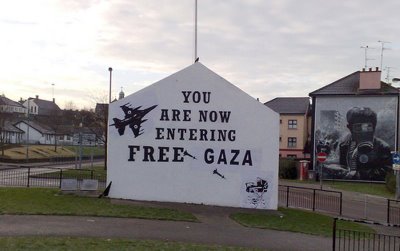

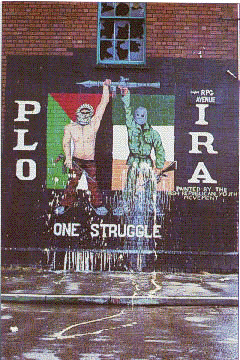
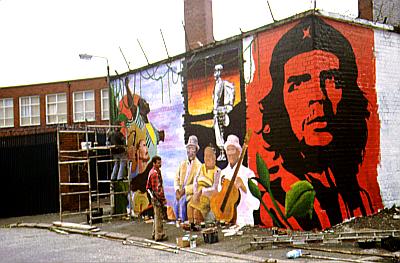
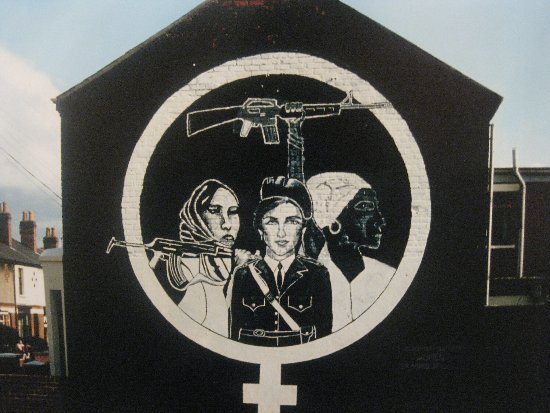
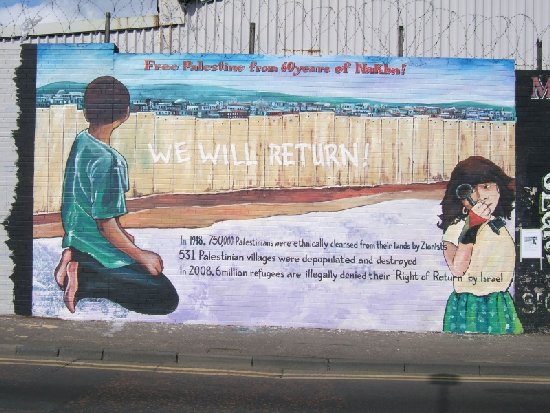
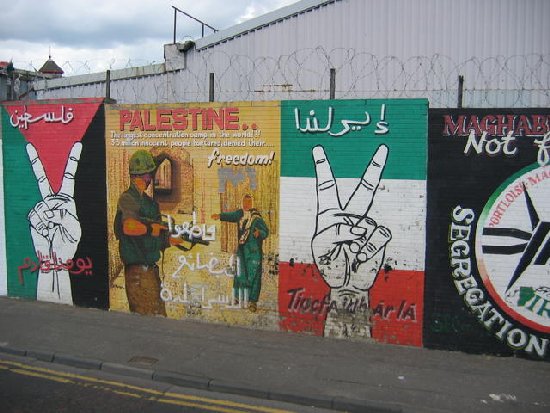
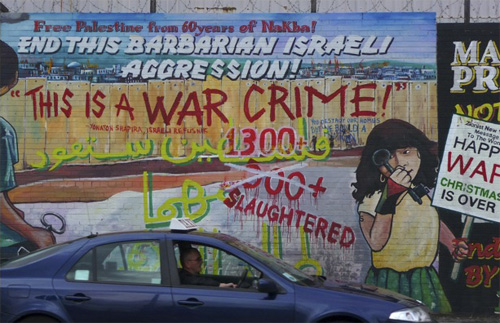

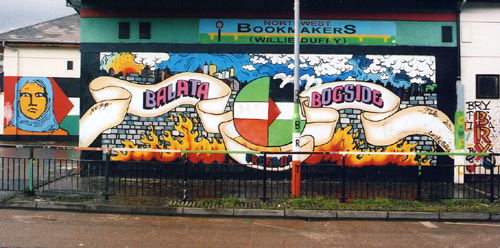

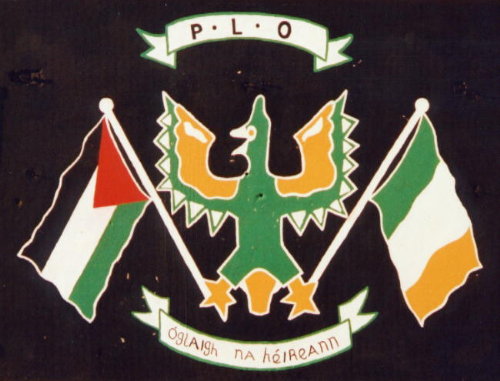
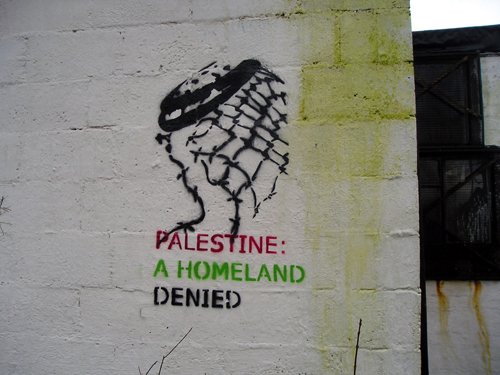

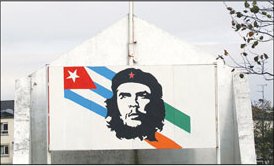
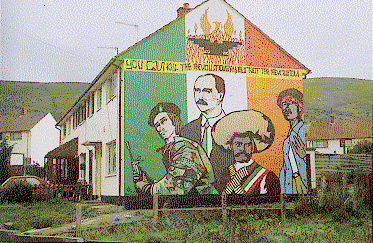
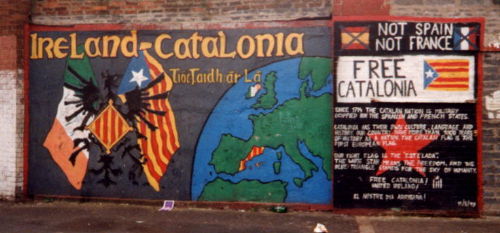
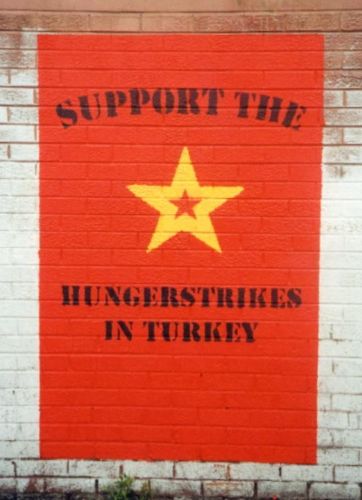

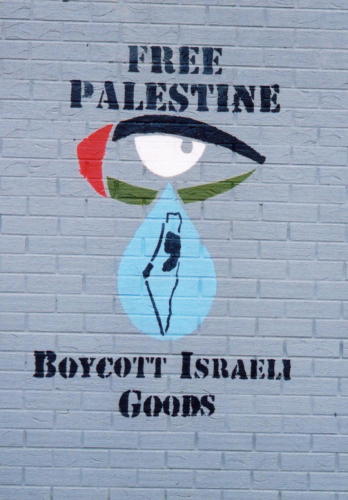
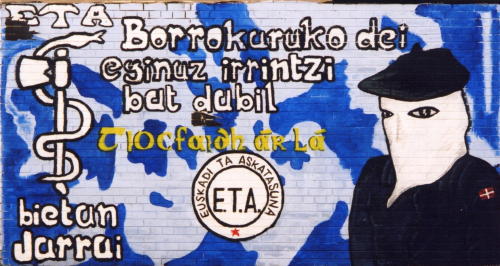
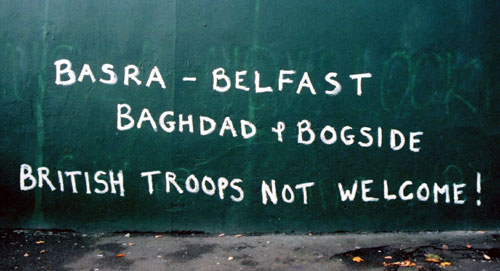

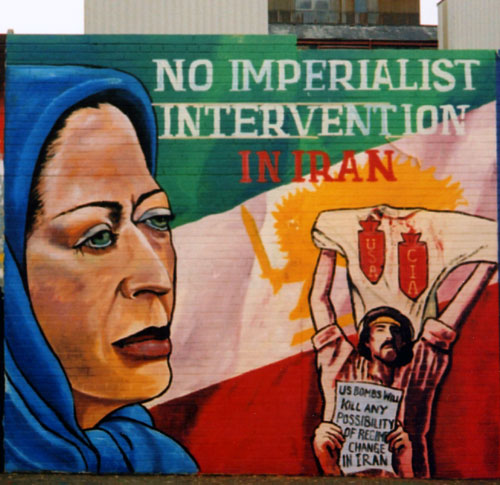

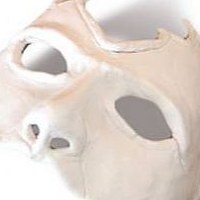
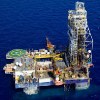
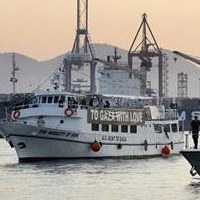
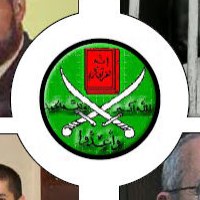





The Irish-Palestinian Connection #israel #ireland #plo #ira #gaza #flotilla http://j.mp/c7R70c
The Irish-Palestinian Connection http://bit.ly/dtH1Bm
RT @CrethiPlethi: The Irish-Palestinian Connection #israel #ireland #plo #ira #gaza #flotilla http://j.mp/c7R70c
RT @CrethiPlethi: The Irish-Palestinian Connection #israel #ireland #plo #ira #gaza #flotilla http://j.mp/c7R70c
RT @CrethiPlethi: The Irish-Palestinian Connection #israel #ireland #plo #ira #gaza #flotilla http://j.mp/c7R70c
RT @CrethiPlethi: The Irish-Palestinian Connection #israel #ireland #plo #ira #gaza #flotilla http://j.mp/c7R70c
RT @CrethiPlethi: The Irish-Palestinian Connection #israel #ireland #plo #ira #gaza #flotilla http://j.mp/c7R70c
RT @CrethiPlethi: The Irish-Palestinian Connection #israel #ireland #plo #ira #gaza #flotilla http://j.mp/c7R70c: … http://bit.ly/aFvMu8
The Irish-Palestinian Connection http://lnkd.in/bVTmg8
Comprehensive survey The Irish-Palestinian Connection – https://www.crethiplethi.com/the-irish-palestinian-connection/israel/2010/
[…] June 24, 2010, we published a comprehensive report on the Irish-Palestinian connection and the Irish support for the Palestinian cause. The Gaza […]
[…] described how Butterly “would walk up to a tank and place her hand over the muzzle.” Butterly was an organizer and spokesperson aboard the 2010 Gaza […]
[…] [2] Allied in Anti-Semitism and The Irish-Palestinian Connection. […]
[…] and Palestinian ‘human rights activism’ is well-documented in our June 24 article, “the Irish-Palestinian Connection”, which was a closer look into the Gaza Freedom Flotilla movement. “In addition to his suspected […]
There was also some Jewish pogrom in Ireland by Catholic Church as there was by the Catholics against Irish Protestants in the South of Ireland. After Irish Independence it left the south almost entirely Catholic and Northern Ireland which remained part of the UK 70% Protestant (with many Protestants from the South moving North or elsewhere). Sinn Fein also sought the Germans to invade Ireland during World War 1 & 2 with Sean Russell dying in a German U Boat. The Ulster Loyalists / Protestants can see many parallels between the two conflicts.
Saw this outrageous Face Book page http://www.facebook.com/pages/Mary-Byrne-is-a-Zionist/164856766859224 showing that anybody who says anything remotely nice about Israel is persecuted. All Mary Byrne, who is a talented singer but a relatively modest celebrity who won fame on a TV singing contest, said was that she had a nice time on a Kibbutz years ago, I think on the Marian Finucane radio show last Saturday. She didn’t say anything about politics. From the info section
“About: *LONG LIVE PALESTINE LONG LIVE GAZA*
Description: Mary Byrne is an XFactor contestant from Ireland.
During an Xtra Factor interview she revealed she had spent a year in Israel working on a Kibbutz.
She is a Zionist and must be exposed as such.
PLEASE SUPPORT THIS PAGE & SHARE AMONGST YOUR FAMILY/FRIENDS!”
@AbirKopty we have deep afinity and admiration for the plight of the Palistinian people we fly your flag in solidarity.http://t.co/Rj2qADP
The Irish-Palestinian Connection http://t.co/O09WLey5